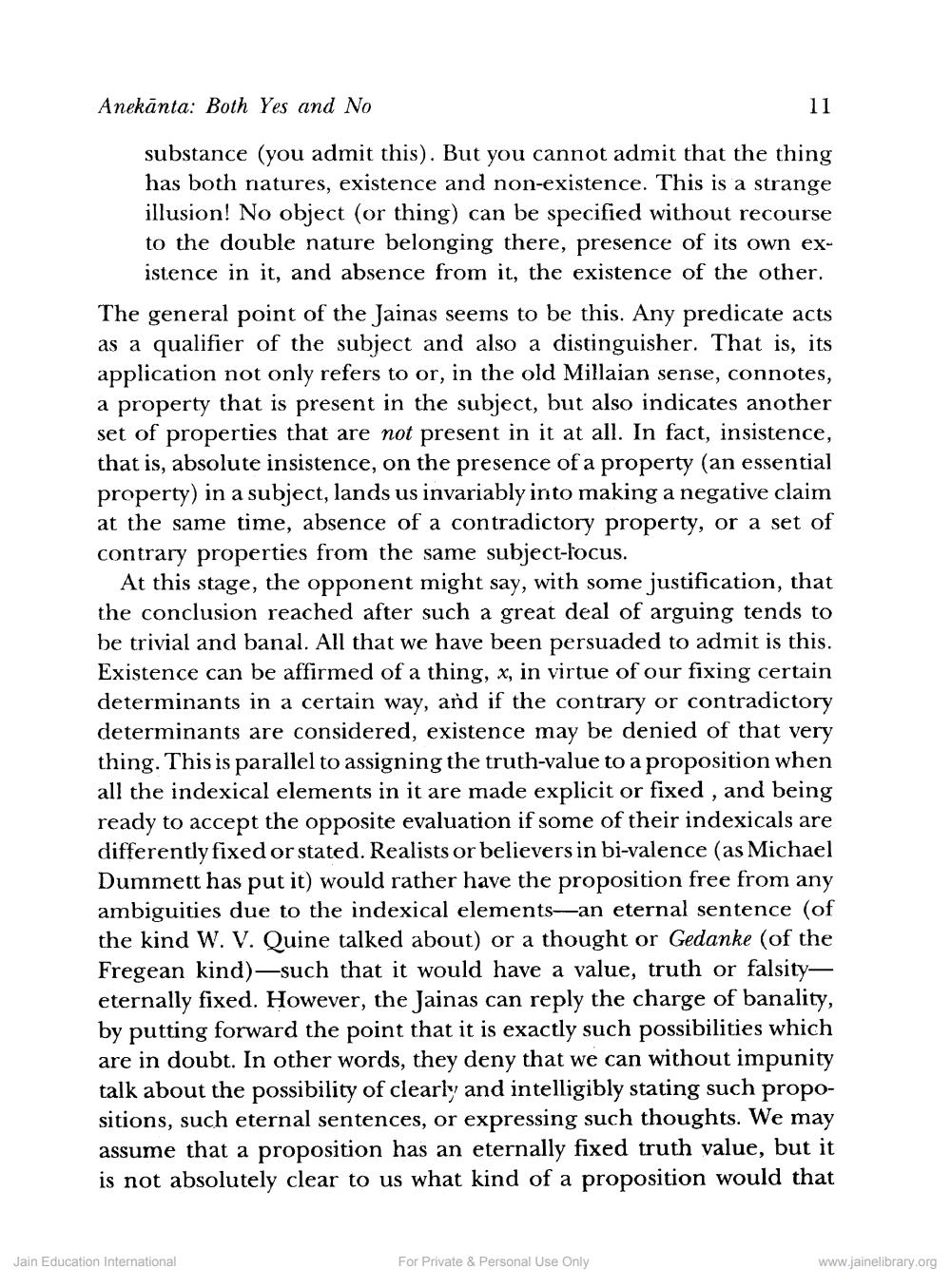________________
Anekānta: Both Yes and No
substance (you admit this). But you cannot admit that the thing has both natures, existence and non-existence. This is a strange illusion! No object (or thing) can be specified without recourse to the double nature belonging there, presence of its own existence in it, and absence from it, the existence of the other. The general point of the Jainas seems to be this. Any predicate acts as a qualifier of the subject and also a distinguisher. That is, its application not only refers to or, in the old Millaian sense, connotes, a property that is present in the subject, but also indicates another set of properties that are not present in it at all. In fact, insistence, that is, absolute insistence, on the presence of a property (an essential property) in a subject, lands us invariably into making a negative claim at the same time, absence of a contradictory property, or a set of contrary properties from the same subject-focus.
At this stage, the opponent might say, with some justification, that the conclusion reached after such a great deal of arguing tends to be trivial and banal. All that we have been persuaded to admit is this. Existence can be affirmed of a thing, x, in virtue of our fixing certain determinants in a certain way, and if the contrary or contradictory determinants are considered, existence may be denied of that very thing. This is parallel to assigning the truth-value to a proposition when all the indexical elements in it are made explicit or fixed, and being ready to accept the opposite evaluation if some of their indexicals are differently fixed or stated. Realists or believers in bi-valence (as Michael Dummett has put it) would rather have the proposition free from any ambiguities due to the indexical elements-an eternal sentence (of the kind W. V. Quine talked about) or a thought or Gedanke (of the Fregean kind)-such that it would have a value, truth or falsityeternally fixed. However, the Jainas can reply the charge of banality, by putting forward the point that it is exactly such possibilities which are in doubt. In other words, they deny that we can without impunity talk about the possibility of clearly and intelligibly stating such propositions, such eternal sentences, or expressing such thoughts. We may assume that a proposition has an eternally fixed truth value, but it is not absolutely clear to us what kind of a proposition would that
Jain Education International
For Private & Personal Use Only
11
www.jainelibrary.org




